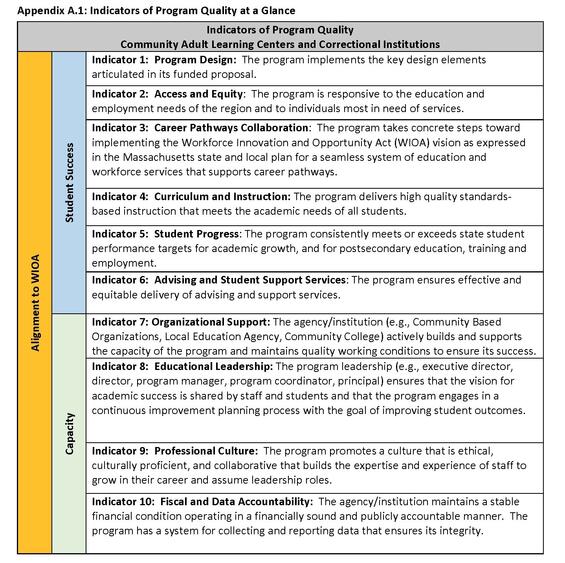Indicators of Program Quality
Purposes
The overarching goal of the [indicators of program quality, or IPQ] is to guide the planning, delivery, and evaluation of all adult education programs in Massachusetts in order to improve services for learners enrolled in [adult education] programs. The IPQ have three primary purposes:
- Guidance in Proposals to the Field: The IPQ are used to guide the development of [the Department of Elementary and Secondary Education’s Adult and Community Learning Services Unit, or ACLS] Requests for Proposals (RFPs).
- Program Self-Assessment: Adult education programs are advised to use the IPQ as benchmarks in designing high quality programs and in measuring progress in key areas. To that end, programs are encouraged to use the IPQ in tandem with the Massachusetts Policies for Effective Adult Basic Education in Community Adult Learning Centers and Correctional Institutions to inform continuous improvement planning.
- Site Visits and Program Quality Reviews: ACLS will use the IPQ as a guide in conducting site visits and program quality reviews. During these visits, ACLS will identify promising practices and areas where further improvement and technical assistance are needed to help support the adult education program.
Organization
The IPQ are not sequential and are meant to support one another. They are divided into two categories:
- Student Success: includes indicators and standards that help programs to support students’ progress towards their next steps in postsecondary education, training, and/or employment leading to a family-sustaining wage.
- Organizational Capacity: includes indicators and standards that help programs to support their staff and guide directors in administering a quality program.

| Date published: | June 2, 2020 |
|---|